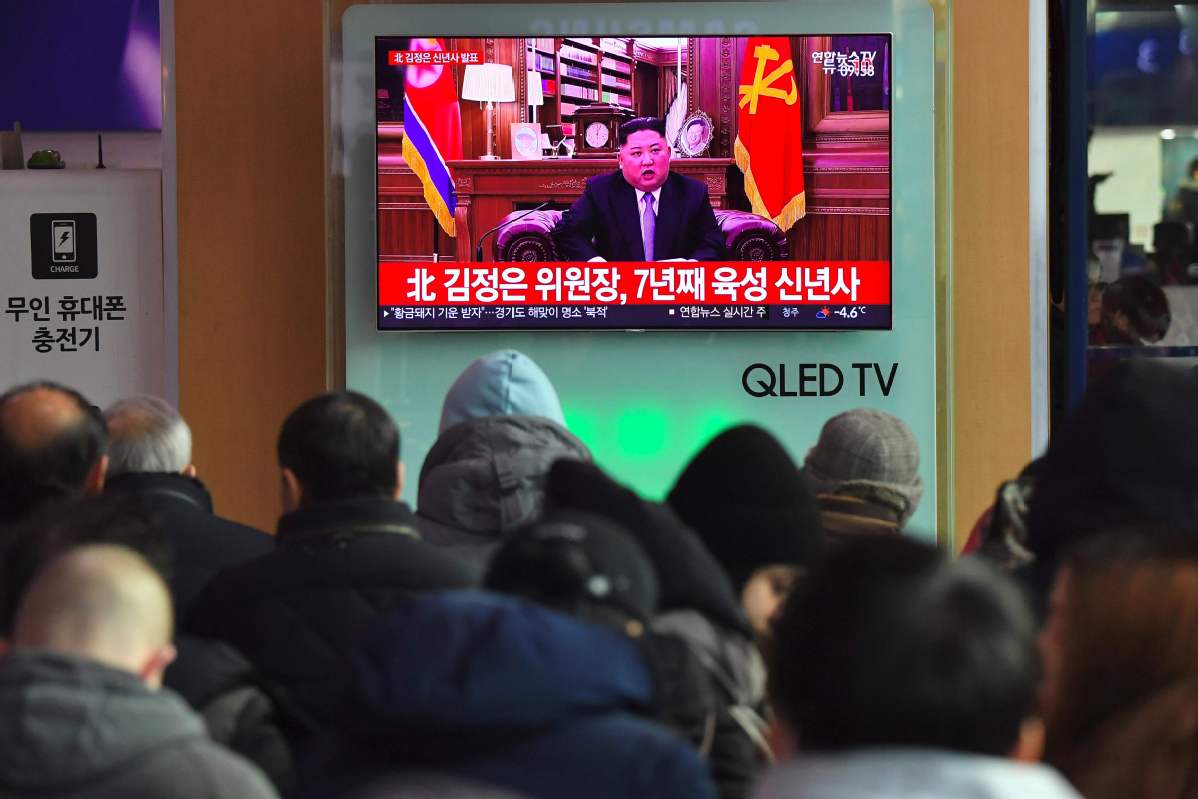DPRK top leader extends olive branch to US
By PAN MENGQI | China Daily | Updated: 2019-01-02 09:50

Kim amenable to more talks with Trump, but under certain conditions
The DPRK top leader Kim Jongun said on Tuesday that he is firmly committed to denuclearization and ready to meet with US President Donald Trump at any time, but warned he could seek an alternative path if the United States sticks to sanctions.
Kim made the remarks during his New Year's speech broadcast by the country's state television, as he also urged the US to take measures in exchange for denuclearization steps the Democratic People's Republic of Korea has taken so far.
"I am always ready to sit down again with the US president at any time and will make efforts to produce an outcome that the international community would welcome," Kim said.
"But we could be left with no choice but to seek a new path if the US does not make good on its promises, misjudges our patience, while seeking to force things unilaterally and clinging to sanctions and pressure," he added.
It was not clear what "new path" the DPRK leader was referring to.
Kim emphasized that it is his firm intention to work on building "new relations" with the US, establishing lasting peace on the Korean Peninsula and seeking complete denuclearization, as agreed to in his first summit with Trump in June, if the US takes "trustworthy and corresponding measures".
He also called for active pursuit of multilateral negotiations among countries involved in the truce agreement that ended the 1950-53 Korean War to discuss replacing the armistice deal with a peace treaty, which he said will lay the groundwork for lasting peace on the Korean Peninsula.
Kim renewed his calls for a complete end to joint military drills between the Republic of Korea and the US and demanded that no foreign military strategic assets be brought onto the Korean Peninsula, saying that they are a "source" of tensions in the region.
He emphasized that all the agreements reached during last year's three inter-Korean summits carry "significant meaning" in which they could be regarded as nonaggression treaty between Pyongyang and Seoul.
"We will never tolerate outside interferences and interventions intended to block our way toward reconciliation, unity and unification of our people while trying to make our relations scummy to their states and interests," he said.
The leader's New Year speech is a key moment in the DPRK's political calendar, reviewing the past and setting out goals for the future. As the Korean Peninsula issue took center stage globally last year, Kim's 2019 speech is highly anticipated as the information disclosed may determine whether the situation on the Korean Peninsula will continue to progress this year.
Wang Jin, a Charhar Insititute researcher, said Kim's speech emphasized Pyongyang's concerns with the stalemate in the denuclearization talks.
"Pyongyang wants corresponding measures for the steps it has taken while Washington asks for more concrete steps before granting any quid pro quo," he said, adding that sanctions on Pyongyang have been regarded as a major stumbling block to denuclearization.
Seoul's Yonhap News Agency reported that Pyongyang has recently stepped up calls for self-reliance and more efforts for economic development as it was frustrated with the protracted impasse in denuclearization talks and unclear when the crushing sanctions will be eased or lifted.
Over the weekend, the DPRK top leader sent a personal letter to the ROK President Moon Jae-in in what appeared to be a friendly gesture, expressing his intent to work together with ROK to resolve the denuclearization issue.
Li Chengri, a researcher at the Chinese Academy of Social Sciences, said since the Korean Peninsula is once again at a crossroad, it is worth anticipated for a second summit between Kim and Trump, as the two may push forward a more specific plan to solve their primary differences in the denuclearization issues.
"The two are currently trapped in a dead end. The problem is that Washington has set as a prerequisite that Pyongyang denounce nuclear weapons before any steps are taken, while Pyongyang wants a peace treaty", he said.
"Washington should compromise when necessary and sign the peace treaty while lifting sanctions. If Pyongyang doesn't act in accordance with the timetable or road map, the US can always tighten sanctions or take tougher measure to solve the problem", he added.
























